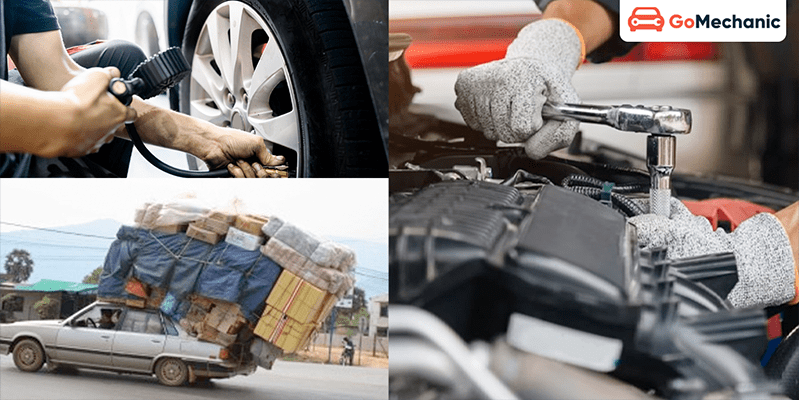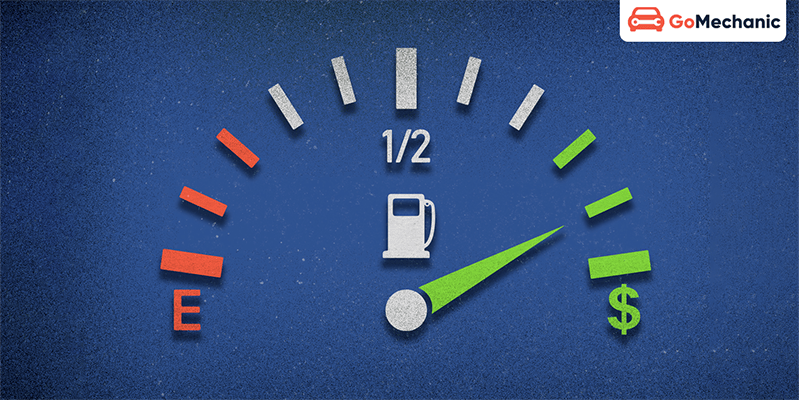Saving money on fuel bills cannot buy you a house but it is always a good feeling when you save some. It is also beneficial for the environment by mitigating pollution. Saving on gas is not just about driving less; it is about driving smartly. Simple things like maintaining proper tire pressure for your vehicle, reducing idle time, and driving at consistent velocities can make a huge difference. It is always good to find ways to extract the best fuel efficiency out of your vehicle.
Driving Habits
Effective driving habits not only save money on gas but is also beneficial for the environment by econmizing on fuel and pollutants. By understanding how driving behaviour impacts fuel economy. Each one of you can make basic changes to your driving style to save the money and reduce carbon footprint.

Smooth Driving
- Rapid acceleration and fuel wasage during braking by forcing the engine to work harder.
- Slowly accelerate and decelerate to save fuel and increase gas mileage.
Consistent Speed
- Maintaing a constant speed on highways enhances fuel efficiency.
- Avoid unnecessary changes in speed to reduce fuel consumption and discharge of pollutants.
Use Cruise Control
- Start cruise control in highways to maintain a constant speed.
- Helps in attaining a consistent fuel efficiency rate and saving on gas over prolonged trips.
Vehicle Maintenance
Regular vehicle maintenance is crucial for maximizing fuel efficiency and reducing operating costs. Simple practices like proper tire inflation, regular tune-ups, and minimizing vehicle weight can improve your car’s performance and fuel economy.
Proper Tire Inflation
- Under-inflated tires create more rolling resistance, requiring more fuel to maintain speed.
- Check tire pressure regularly and inflate according to the manufacturer’s recommendations to optimize fuel efficiency.
Regular Tune-Ups
- Routine maintenance tasks such as oil changes and replacements of air filters ensure the engine operates efficiently.
- A well-maintained engine burns fuel more effectively, improving mileage and reducing emissions.
Lighten the Load
- Carrying unnecessary weight in the vehicle increases fuel consumption.
- Remove excess items from the trunk and interior to lighten the load and improve fuel efficiency, especially during long trips.
Fuel Efficiency Tips
Improving fuel efficiency not only saves money but also reduces environmental impact. Simple adjustments to driving habits and vehicle usage can make a significant difference in how much fuel you use.
Plan Efficient Routes
- Avoiding traffic congestion and unnecessary detours can reduce time spent idling and improve overall fuel efficiency.
- Use navigation apps to find the most direct and traffic-free routes.
Avoid Idling
- Idling wastes fuel because the engine continues to run without moving.
- Turn off the engine if you anticipate being stopped for more than a minute, except in traffic.
Use AC Wisely
- Air conditioning increases fuel consumption, especially at high speeds.
- Use AC sparingly and consider using the car’s ventilation system or opening windows when driving at lower speeds to save fuel.
Smart Fuel Choices
Making smart choices about fuel can improve your vehicle’s performance and reduce environmental impact. Whether it’s choosing the right gasoline or exploring alternative fuels, each decision can make a difference.

Choose the Right Fuel
- Use the type of gasoline recommended in your vehicle’s owner’s manual.
- Using higher-octane fuel when it’s not required doesn’t benefit your car and wastes money.
Consider Alternative Fuels
- Ethanol blends like E85 can be options if your vehicle supports it and it’s available.
- Electric vehicles (EVs) are another option that reduces reliance on gasoline altogether.
Community and Additional Resources
Engaging in community-driven strategies can not only save money but also reduce environmental impact. From carpooling and public transportation to sharing tips, leveraging community resources can foster sustainable practices and collective benefits.
Carpooling and Ridesharing
- Coordinate with friends, neighbors, or colleagues to share rides and split fuel costs.
- Carpooling reduces the number of vehicles on the road, easing traffic congestion and lowering emissions.
Public Transportation
- Utilize buses, trains, or other public transit options whenever possible.
- Public transportation reduces individual fuel consumption and contributes to cleaner air quality in urban areas.
Community Tips
- Encourage readers to share their own fuel-saving strategies and experiences in the comments.
- Foster a community discussion to exchange ideas on sustainable transportation and fuel-efficient practices.
Conclusion
In conclusion, saving money on fuel is good for your wallet and the environment. Simple habits like keeping your tires properly inflated, driving smoothly without sudden stops, and maintaining a steady speed can save fuel and reduce pollution. Regularly maintaining your car and removing unnecessary weight also help. Choosing the right type of fuel and exploring alternatives like ethanol or electric vehicles can further cut costs and lessen your carbon footprint. By sharing rides through carpooling or using public transportation when possible, you not only save money but also reduce traffic and emissions. These small changes add up to big savings and a cleaner planet.





